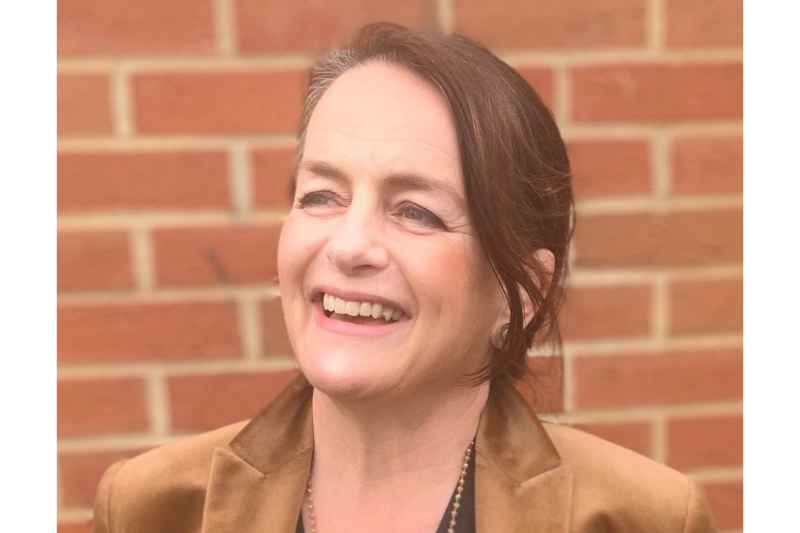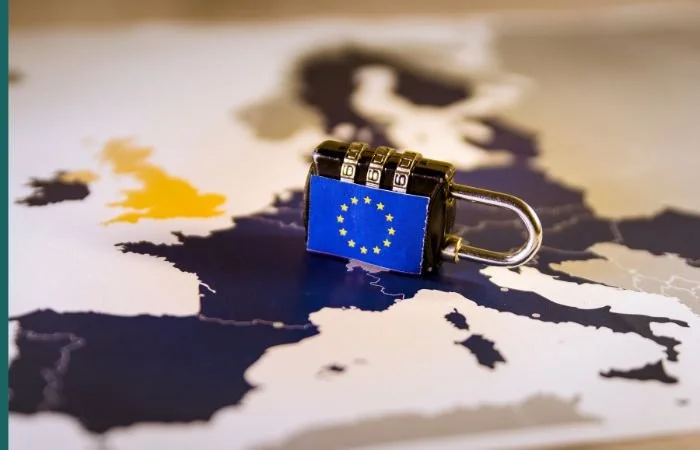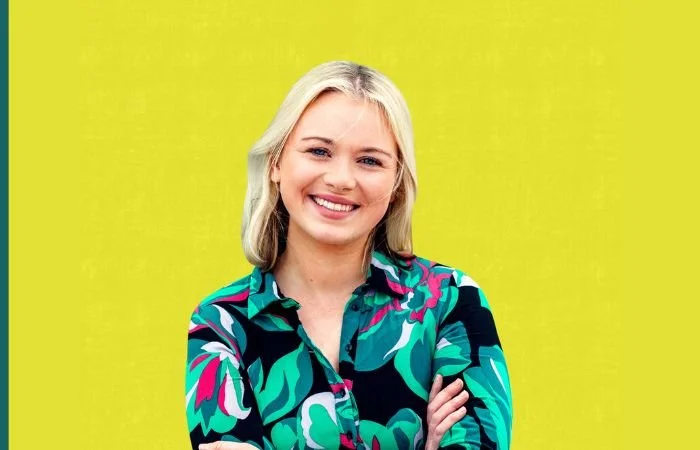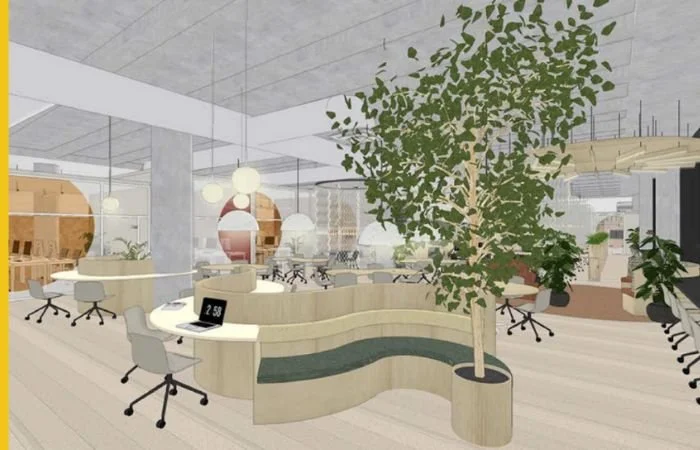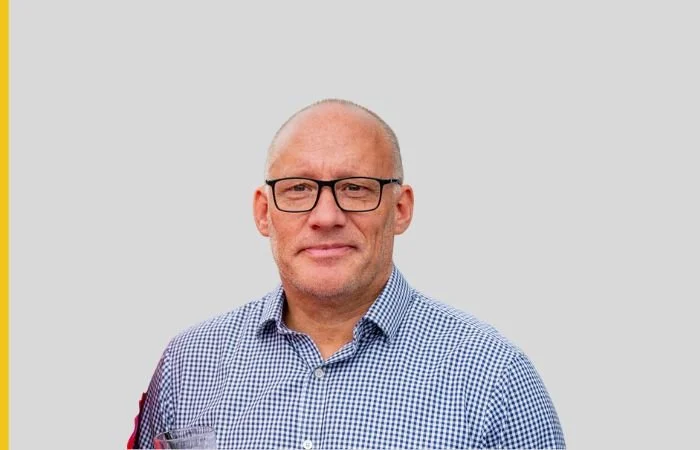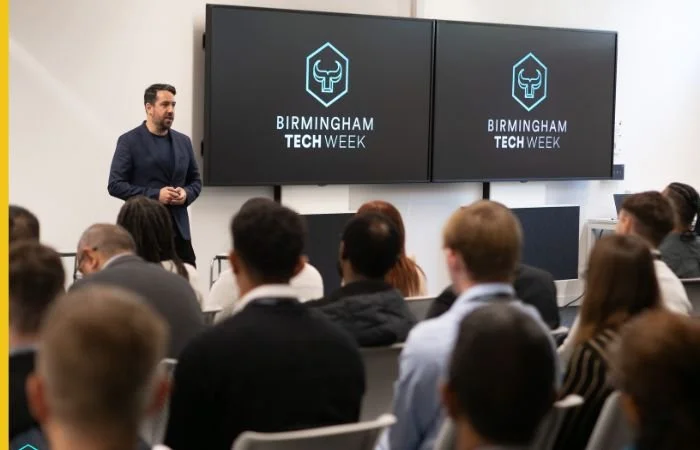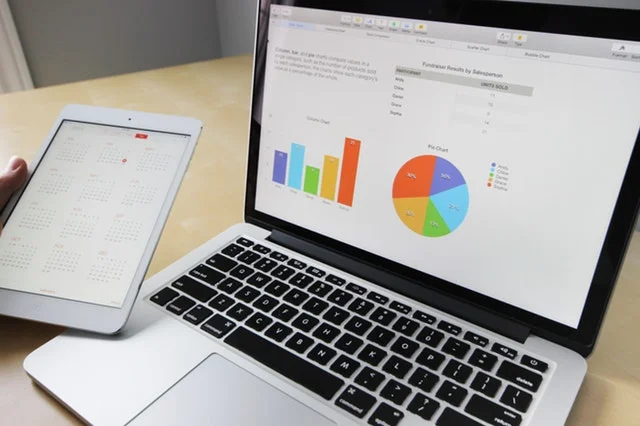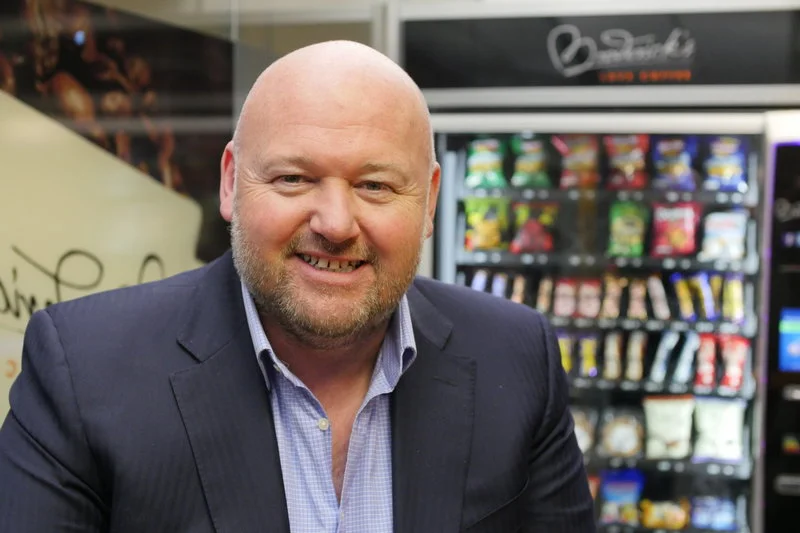Meet the MD of Product Chain
It is always such an intriguing conversation when we talk about the journey of running a business. But, before we talk business, tell me a little bit about yourself Fiona?
I have had a long and varied multinational career, I spent some years at Shell, which came about entirely by chance and it was a fantastic experience. That experience lead me on to be the first female industrial rep in Shell back in the 1980s. When there are 29 guys and you, they tend to remember you in a very male-dominated area, so that was my training, which was superb. One of my guiding principles from that is that people buy people first because the way I got into Shell was completely random; it was by a guy talking to me on a broken-down train. I always believe in those opportunities, so, that was fantastic!
My next action to that after leaving Shell was to go and set up my own environmentally informed company, a nappy laundering service, way back in the early ’90s. I was kind of ahead of the curve then, looking at the environment, but again it also informed me about what it takes to be an entrepreneur and the downside of that, because all of the drive and energy that it takes to set something up, you lose all of that because you have to do absolutely everything. So, it was an excellent experience for me to have, to know that I understand what the entrepreneurs that I am working with are going through. I want them to be the best at what they do and not have to do all the bits that suck their energy and creativity.
Beyond that I have always been in marketing professional services, so that’s what got me to today, being in a real variety of environments. Looking back, I’ve realised that I have never followed in anyone else’s footsteps – every job I’ve done has been a first, which probably makes me very unemployable.
How did you end up working for Product Chain?
Again, a complete accident. An opportunity came up - I was previously involved with Waitrose by marriage, so I was essentially “Mrs Waitrose” as I was married to the then MD of Waitrose, it was a tremendous privilege and I had a great experience with the food and drinks industry. Although I wasn’t going out to work, I was raising a family at the time; I got to meet lots of incredible food brands and hear their stories – the struggles and everything that came with running their business.
And through that, we learnt of Product Chain. The founder had run it as a lifestyle business for many years and times were changing, and his circumstances were changing. It seemed like a great opportunity to marry our knowledge, predominantly food and drinks, but other products as well. With my marketing professional services experience, I could see that this was a good business, which needed professional management and brought up to date in a much more demanding environment. So, we bought it nine years ago, and it is indeed a different business now to what it was then — built on the heritage of good brands and great people and experiences.
What do you think makes the brand different?
One of the main points here is longevity. Many brands and agencies have tried to do this over time, and many of them have disappeared because they over extended themselves and did not protect their Clients’ money. Many services will give advice, but not live with that advice. In my career, particularly in Shell, KPMG and Charterhouse, you’d get consultants in, and they’d give advice, charge a lot of money for it, and then they walk off and were never expected to deliver - and I think that it’s left me with a bad feeling about that way of doing things.
We are different in that we don’t sell advice, we give a lot of it, but then we have to live with it and deliver against it, so it’s not all about the shiny, exciting parts. It’s about the old phrase; retail is detail – so it’s a lot of the very dry stuff, the day in and day out.
Is your stock on shelves?
Are you planning for enough stock?
What’s the rate of sales doing?
What do we need to adjust?
It’s the hard graft, and we are there every day for the long term.
We rebranded last year, and the design agency spoke to several of our former and existing clients, and one of the critical feedbacks was the integrity of our advice. The thing is everyone wants to hear that it’s going to be simple, this is the best thing I’ve ever seen, or within a few years you’ll be in five major retailers. We absolutely don’t say that as we are very grounded in our advice. It’s not that we are unenthusiastic unambitious we want people to have a realistic view of what is possible so that they are not disappointed continuously or they commit their cash flows where they may not have any cash coming in. It’s about the integrity of that advice, and sometimes people don’t want to hear that, and they won’t work with us because they want to hear something different. But, if we don’t believe it, we won’t say it. And indeed if we don’t believe in a product, we very politely pass on it and sometimes we regret it, but very infrequently.
It really is down to being able to work with a limited number of brands, so we have to believe in it, and we work alongside them. We feel the pain, and we’re in it for the long term. It’s not about how much money we can make in year one; it’s about where do you want to be in year three and year five?
As an independent agency, how do you think this benefits your clients?
Going back to the point of longevity, we have been around for a long time, so we have seen a lot of innovation, and we’ve been at the forefront of a lot of innovations; we’ve seen lots of recessions and difficulties. Due to this experience clients can immediately plug into it, so this collective knowledge is put at their disposal to accelerate the process. We know what the pitfalls are, so we steer them around it all.
It doesn’t mean they disappear altogether, but we’ve often had clients come to us where they might have gained a listing and sort of have a proof of concept but are being asked by a retailer for a considerable investment; that is disproportionate to the scale of their business. And they don’t know what they are going to get from it or whether they need to spend that amount. Because we are very focused on return on investment, we can then guide and show them alternative options to consider.
It’s the same with PR; people think they have to do PR. Yes, it’s excellent as a tool once you‘ve got distribution, without distribution it’s a waste of money, but people lose their sense of judgement, so we are always bringing it back to the commerciality and the options in front of them. What’s the return on investment?
Ultimately it is their brand, but we are there to advise, and then they make the decisions, really informed decisions, so they don’t lose control of their brand.
I’ve noticed that the process of onboarding a client is an essential part of the process. Why is chemistry vital?
It is absolutely vital. I felt a little foolish when I started doing this a few years ago, and at the time when people would come along to meet us, they would think they were interviewing us when it was the other way around. The reality it is a mutual appraisal. I used to say well; this is what I’m thinking, this is my thought process and lead onto detailing whether the proposition was interesting and whether it could be commercial. We have to convince ourselves of that because we can only commit to a few people and it’s a very intense relationship. If I commit to Brand X, it means that I can’t go and commit to Brand X plus one. There have been times when some large International companies would come in to meet with us, and they wouldn’t listen to anything, though they would want us to work with them. I’d say; well I’m not going to work with you because you’re going to be unhappy because you don’t like my advice and if you don’t like my advice then there is no point in working with us.
Sometimes you can get a good product, but the person who comes in, you can feel the energy just draining out of the room – they do not enliven you. Whereas with other people, you can feel the energy building and that is important, because there are going to be hard times, really tough conversations, so you’ve got to have similar values. It’s imperative to my team and me that we work with the right people.
I know it’s a very privileged position to be in, but again it’s about integrity because if they are going to treat my team right, I know they are not going to be good to work with.
Tell a little bit about company culture at Product Chain and how you’ve managed to maintain it as the business expands?
Well again, I come back to that old saying, ‘people buy people first’, attitude is absolutely everything. We are very committed to each other, very supportive and adaptable. An example would be not very long ago a member of our team was very unwell, and we thought we were going to lose her and throughout it all, I continued to pay her salary without a shadow of a doubt. We didn’t need to do that, financially it was tough, but morally it was the right thing to do. Practically speaking, someone might say that’s not a good commercial position, but spiritually and emotionally that was an excellent decision, and my gut told me that was the right thing to do.
We have a member of our team who has been here for 27 years, and people might say it shows a lack of imagination. Well, I say it shows true grit and high adaptability, she’s a fantastic asset to the company. Likewise, one of our newest recruits, she came in as our night-time cleaner, and I would see her some evenings, and I thought; that young lady communicates very well, she has a lovely demeanour and when we had a vacancy we asked her to apply and she is an absolutely brilliant asset to our team.
It comes down to the individual and looking at what their values are because if the values aren’t right, it’s never going to work.
Who is your ideal client and what problem do you solve?
I’m fortunate in that I have fabulous clients, and all of them have come to us when they’ve gotten proof of concept, so they’ve seen some small way that their idea has got legs. And that’s important to us because we can’t sell just an idea.
Our ideal client is when they’ve got an idea, enthusiastic, they recognise that they don’t know everything and what we can do is support that enthusiasm, support that idea while making it into a commercial success.
We work with Cano Water, and at first, I thought it was a bit odd selling water in a can. But, I could see their enthusiasm and the absolute marketing potential in them and the potential in the product and what they needed was to graft onto some experience, which could harness all this energy into something that can start building as a business. I remember they didn’t really want to go for Tesco at; first, they thought they weren’t ready, but we showed them what the opportunity was and went in at an environmental angle. Rather than the resealable angle, which is what they were thinking about, so it’s that complement of experience, strategic thinking, coupled with their tremendous energy and drive, which then makes it winning team.
We’ve repeated that again and again. Cauli Rice is another one of our brands, lovely client. When Gem Misa first came to us and realised all the things we could do to support her she was literally sitting in our boardroom sort of in tears. She is a tough woman who was trying to do it all.
By giving them that platform and showing them what we can do and that we are going to do the thinking alongside them, it gives them the time and space to think and do the things they are really great at. If you try and work in a field where it’s not your natural territory, it’s not where you get your energy from; you won’t last long.
Running any business is hard work – how do you maintain the balance between work and home? Is there such a thing?
Humour! I think we have this idea that everything has to be a hard slog and yes, there are lots of time when things are hard, but keeping an optimistic, fun attitude where you enjoy the moment instead of running away from it will help. I mean, I’m privileged where this is lovely work, but likewise, we’re not saving the world daily, so let’s not take it too seriously. It doesn’t mean you don’t work hard, but it’s keeping things in perspective.
I think having a family does help with that too because they don’t give a damn what you do, they still want their tea on the table.
But, something which I have had to learn the hard way is looking after myself. It comes down to the old airline advice of putting your oxygen mask on first, as otherwise, you can’t help anyone else. So, in terms of that I love going home and cooking dinner, I don’t cook every day, but food is a real passion of mine. Yoga and meditation, I’m no poster girl for it, but it’s the practice, rather than the picture-perfect look that gets me there. I also love walking with friends, just the simple pleasures - keeping a balance.
What would be your top tips to food and drinks startups, getting ready to launch a product?
The first thing is to be honest with yourself, with what your motivations are, why you’re doing it. A lot of entrepreneurs are not young people, they are usually people who maybe had another career, and they’ve come out of that career, so it may be an overreaction to not having any control of their destiny, or it might be that they want to make a lasting mark on the world. Just be really clear, no matter what the answer is, be honest with yourself about why you’re doing it.
The other one is to know your consumers, what’s important to them and why will they buy your product? You can have a gut feeling, I'm one for gut feelings, as we’ve just created a product on a gut feeling, but I have then searched for other evidence to support it. And at the end of the day, I may still choose to ignore it, but that discipline of checking things out and getting consumer feedback and professional advice is essential. Yes, you can reject it in the end, but at least go through the process. Lots of people are so wedded to their idea that they are scared to go and get any objective feedback because they don’t want anyone to criticise it, but that’s is what would save them.
What are you passionate about, that you would do for free?
Interesting one, but I would say not to offer to do anything for free because if somebody offers to do something for free, they don’t value themselves and often their advice will not be valued. I think there has to be mutual respect, not necessarily a fee, but some exchange in some way, to form that contract because otherwise, people feel obligated and if they are the recipient they’ve got to have the chance to reject it.
Whatever the outcome of a meeting or a commercial relationship I always want people leaving a meeting with us feeling good – that I will do for free!
What’s your vision for Product Chain?
This is a fantastic question. Well, Product Chain has been going for a very long time, and I want the company to continue and do so with its values intact. We could have been more profitable; we could have been more high profile if we had let go of the things which make us who we are and possibly years ago I could have stepped out of the business and taken a lump sum of money. But that’s not what’s important to me.
I want a business where we are a natural choice, where people are competing to work with us, because they understand our values and how we will treat them. The brands that we work with are either good for you, health-focused and have a social purpose. I’ve got this theory that in the light of everything that is happening in our country and the world, as individuals we are all trying to do a little bit of good because we are unable to control anything major. It’s small purchasing decisions, standing up for values – those are the sort of clients we want to work with, those who offer that opportunity. So, Product Chain will have a future of its own beyond me, but I can’t understand that I will not be interested in what these developments are. Who are these great people, what are their back stories and who is the next generation?
As we have gotten ourselves into a very robust position as a business, we are doing an event in May ‘How to stop the wheels falling off in your Retail Launch’. We try to differentiate ourselves from lots of other companies who are doing this because hardly any of them have lived alongside these brands; they only deal with the front end of things. And as an adjacent to that, we don’t know what we’re calling it yet, but it’s a Dragons Den style event where we’re looking for three brands that we can work with for a very modest fee. Bringing together a creative agency and PR. Where effectively we are sponsoring them and their success, so hopefully, we will be able to interview quite a few, and then out of that identify as we have with Cano and Coconuts Naturally the winning aspect of their product. Get them into an accelerator where people are doing the work alongside them.



